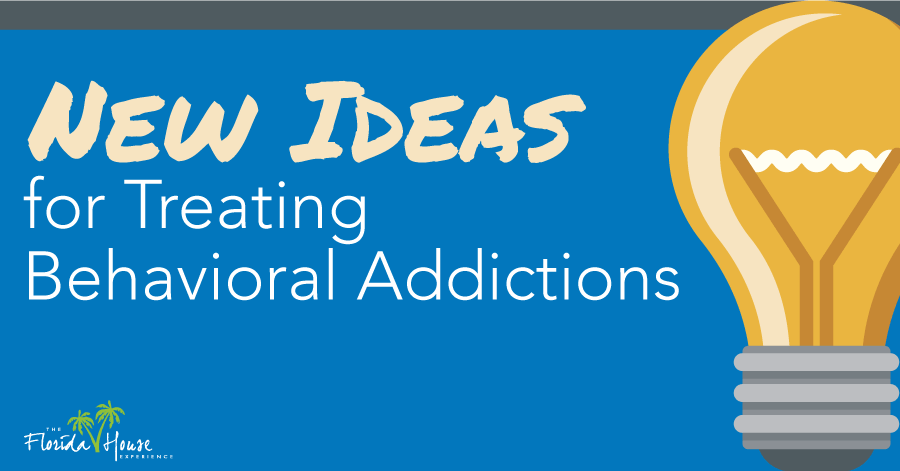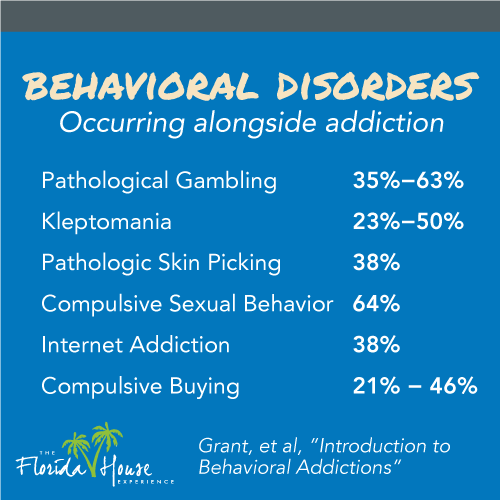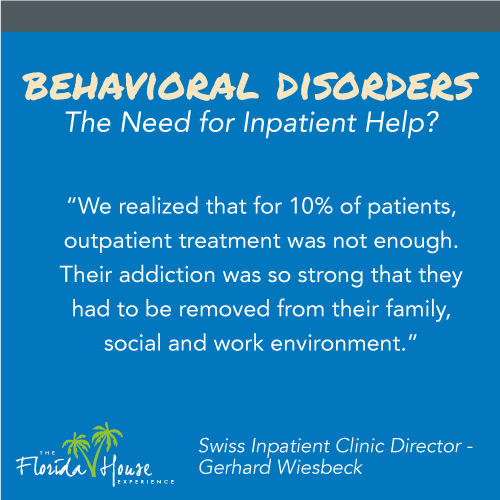
Behavioral addiction is an addiction to an activity that causes physical and/or psychological harm to the individual. Common behavioral addictions include gambling, sex, shopping, hoarding, video games, and the Internet.
Internet and Other Behavioral Addictions–Are They Real?
 Internet addiction is a relatively new type of behavioral addiction involving the inability for someone to stay off the Internet. In many cases, individuals with an Internet addiction are literally “addicted” to browsing chat rooms, porn sites, social media sites like Facebook or Instagram or playing online role-playing games. Although the stigma associated with an Internet addiction does not come close to the ostracizing stigma affecting people with drug addiction, an obsession with the Internet can be just as destructive as substance addiction.
Internet addiction is a relatively new type of behavioral addiction involving the inability for someone to stay off the Internet. In many cases, individuals with an Internet addiction are literally “addicted” to browsing chat rooms, porn sites, social media sites like Facebook or Instagram or playing online role-playing games. Although the stigma associated with an Internet addiction does not come close to the ostracizing stigma affecting people with drug addiction, an obsession with the Internet can be just as destructive as substance addiction.
Like other people with a behavioral addiction, Internet addicts suffer from personality and mental disorders. Social anxiety disorder, agoraphobia, low self-esteem, avoidant personality disorder and body dysmorphic disorder are some of the mental health problems underlying behavioral addictions. Some evidence exists concerning recovering drug addicts to become “re-addicted” to another type “substance”, such as the Internet or gambling and find themselves seeking gratification in another addiction that initially seems harmless and more acceptable to society.
Treating behavioral addictions is just as challenging as treating substance addictions. While antidepressants, medications to reduce cravings and psychotherapies are standard treatment modalities for behavioral addictions, they are not always successful in the long-term, especially since most behavioral addictions do not involve criminal activity. In other words, people with an addiction to the Internet or online video games do not usually find themselves chronically unemployed, homeless or incarcerated. Instead, they suffer from divorce, social isolation, depression and an inability or unwillingness to sustain family relationships.
Inpatient Treatment for Behavioral Addictions
 Until recently, behavioral addictions have been addressed predominantly with outpatient treatment. That is, the patient sees a mental health therapist or psychologist once or twice a week for psychotherapy. Usually, the patient is prescribed an antidepressant such as Zoloft or Paxil to help reduce compulsions.
Until recently, behavioral addictions have been addressed predominantly with outpatient treatment. That is, the patient sees a mental health therapist or psychologist once or twice a week for psychotherapy. Usually, the patient is prescribed an antidepressant such as Zoloft or Paxil to help reduce compulsions.
The Basel University Psychiatric Clinics have recently opened Switzerland’s first clinic in Basel City that specializes in treating behavioral addictions on an inpatient basis. Psychiatrists at BUPC discovered that after assisting over 100 people suffering behavioral addictions, about 10 percent of those patients needed more than just outpatient treatment. Just like successfully treating drug addicts demand the addict be removed from their social and family environment for residential treatment, Swiss psychiatrists say this is essential for treating behavioral addicts as well.
According to the article, this innovative clinic is offering holistic therapies like kinesiotherapy, physiotherapy, and ergotherapy in addition to psychotherapy (both individual and group). Because many behavioral addicts seek help due to relationship breakdowns, inability to remain employed and debt issues, the clinic has social workers who can help patients find a job and resolve debt problems.
Inpatient treatment at Basel University Psychiatric Clinics for a behavioral addiction lasts between six and 10 weeks. To date, the clinic is the first and only one of its kind in the world. The pioneering work psychiatrists staffing the clinic plan to do regarding treatment of behavioral addictions is expected to set precedents for emerging clinics that also specialize in treating behavioral addictions.
FHE Health offers treatment plans specially designed for people with behavioral addictions. Through a combination of cognitive behavioral therapy, psychoeducation, motivational interviewing and professional support, patients will be able to identify specific triggers that compel them to engage in unproductive and unhealthy activities. In addition, patients also learn how to implement effective coping techniques they can use to manage their addiction and develop a deep understanding of why they are addicted to the Internet, gambling, shopping, video games or sexual encounters.






